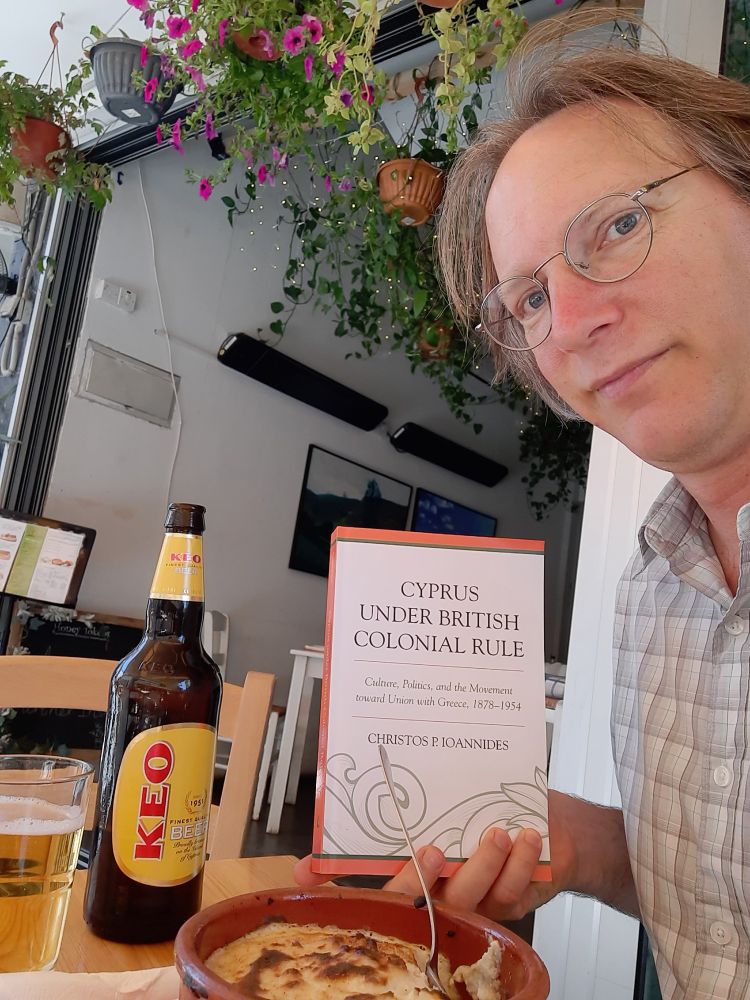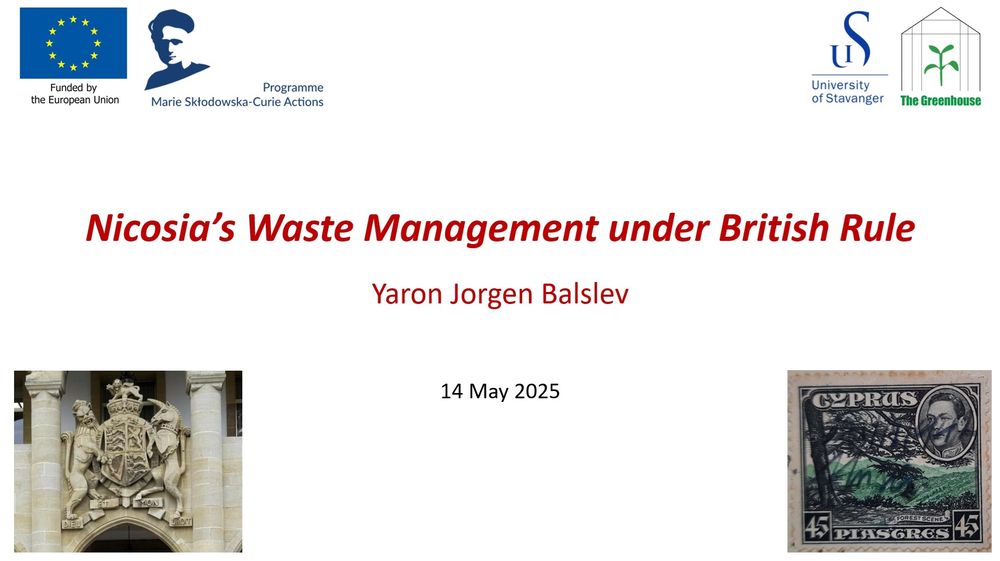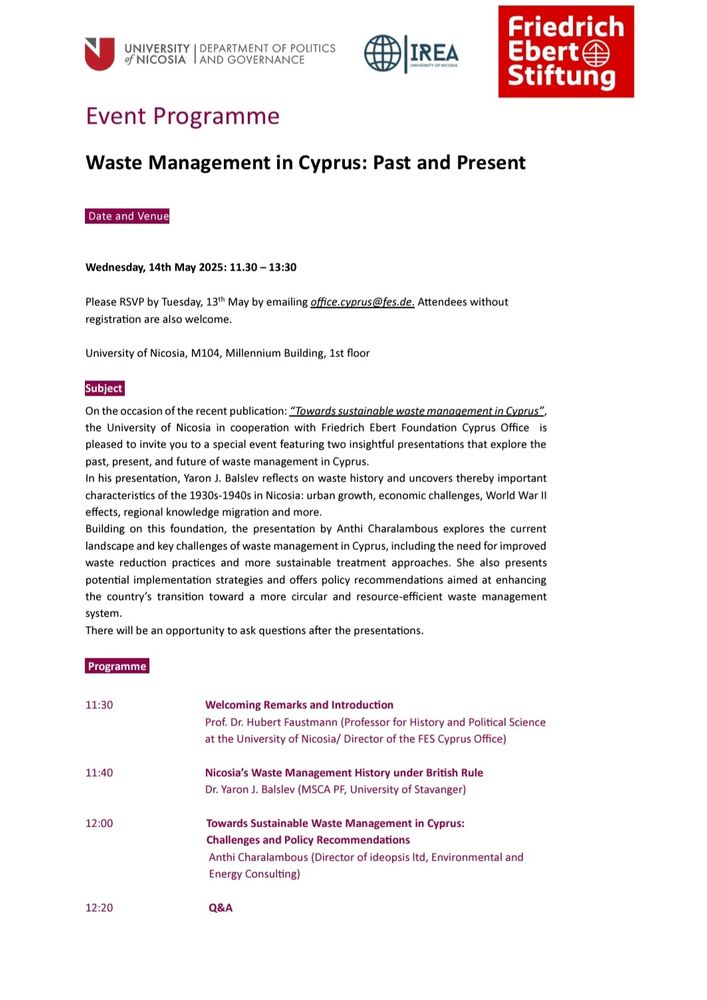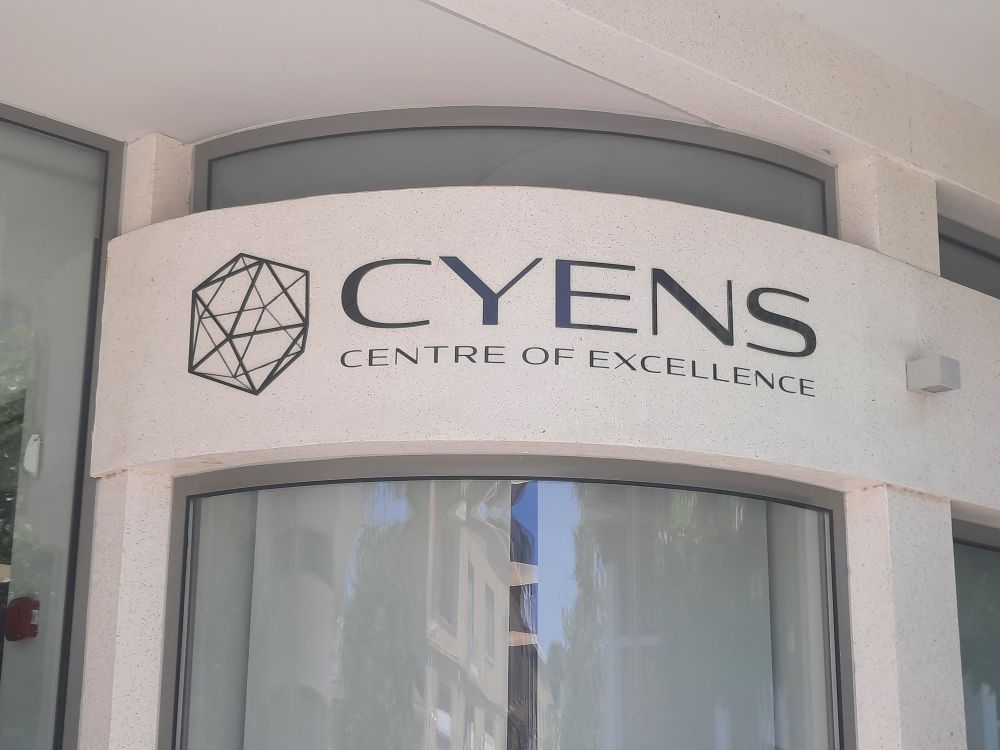
Yaron J. Balslev
@yaronbalslev.bsky.social
Environmental historian who works on waste history in the Middle East. MSCA postdoc at the University of Stavanger, Norway.
My main project is BLOCYP: https://www.uis.no/en/research/the-greenhouse-centre-for-environmental-humanit
My main project is BLOCYP: https://www.uis.no/en/research/the-greenhouse-centre-for-environmental-humanit
Reposted by Yaron J. Balslev
It appears that hundred years ago, the urban waste was sorted for producing compost. For some years they even kept a herd of pigs on the dumpsite, for “improving the compost”. That’s hilarious!
/YJB
/YJB
May 8, 2025 at 1:20 PM
It appears that hundred years ago, the urban waste was sorted for producing compost. For some years they even kept a herd of pigs on the dumpsite, for “improving the compost”. That’s hilarious!
/YJB
/YJB
Reposted by Yaron J. Balslev
After a long walk, I could relax in a tavern with good Musaka, local beer and a book on Colonial Cyprus. It is so different to read it in the main street of Nicosia, a few steps from the checkpoint between the two parts of the city. /YJB @yaronbalslev.bsky.social

May 7, 2025 at 5:51 PM
After a long walk, I could relax in a tavern with good Musaka, local beer and a book on Colonial Cyprus. It is so different to read it in the main street of Nicosia, a few steps from the checkpoint between the two parts of the city. /YJB @yaronbalslev.bsky.social
Reposted by Yaron J. Balslev
It was massive! In the early 20th Century, they killed over 2,000,000 rats, spending thousands of pounds on it.
I just wonder what the British did with all the tails they collected… perhaps soup??
I just wonder what the British did with all the tails they collected… perhaps soup??
April 1, 2025 at 9:36 AM
It was massive! In the early 20th Century, they killed over 2,000,000 rats, spending thousands of pounds on it.
I just wonder what the British did with all the tails they collected… perhaps soup??
I just wonder what the British did with all the tails they collected… perhaps soup??
But not this time. It appears that in Colonial Cyprus, rats were an agricultural threat to trees, particulary the carob tree. So, the British officers decided to eliminate the rats. The campaign was simple: The farmers were offered money for catching rats and bringing their tails as proof.
April 1, 2025 at 9:35 AM
But not this time. It appears that in Colonial Cyprus, rats were an agricultural threat to trees, particulary the carob tree. So, the British officers decided to eliminate the rats. The campaign was simple: The farmers were offered money for catching rats and bringing their tails as proof.
But not this time. It appears that in Colonial Cyprus, rats were an agricultural threat to trees, particulary the carob tree. So, the British officers decided to eliminate the rats. The campaign was simple: The farmers were offered money for catching rats and bringing their tails as proof.
April 1, 2025 at 9:15 AM
But not this time. It appears that in Colonial Cyprus, rats were an agricultural threat to trees, particulary the carob tree. So, the British officers decided to eliminate the rats. The campaign was simple: The farmers were offered money for catching rats and bringing their tails as proof.





